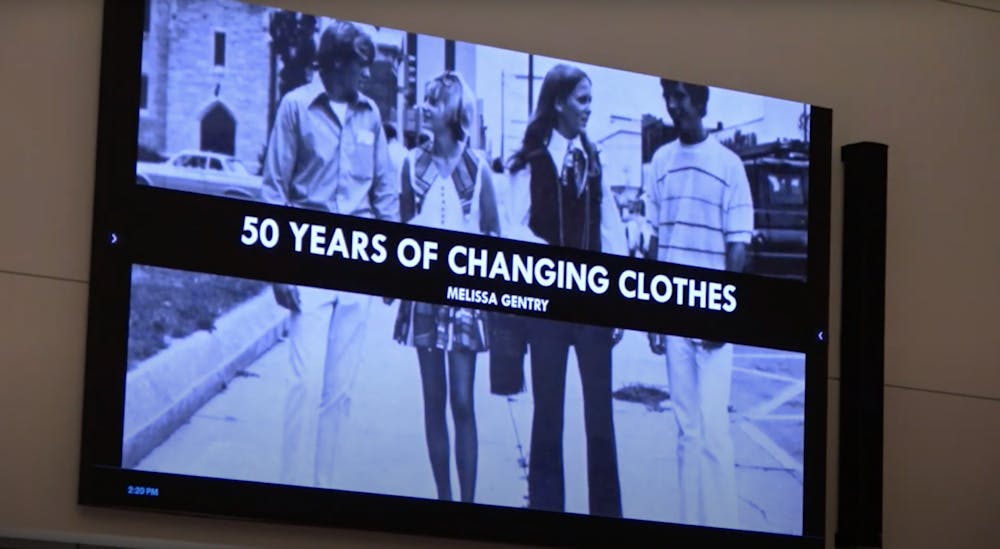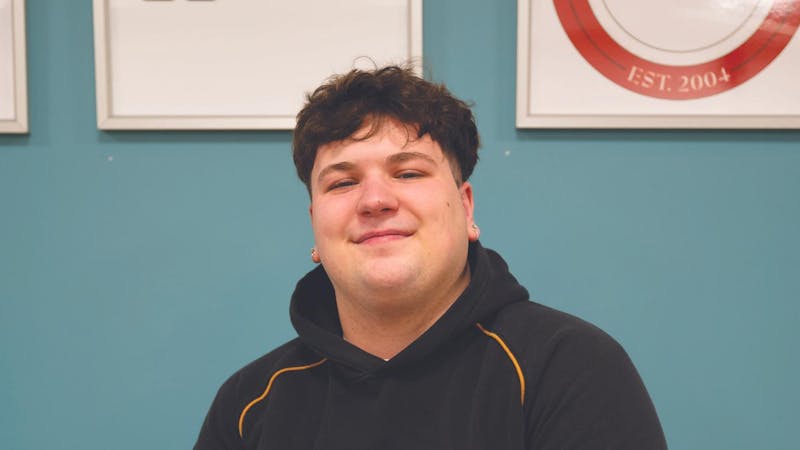MUNCIE, Ind. – On Wednesday, the Alumni Center held the annual Fashion Show of American History hosted by the Association of Lifelong Learners. This year’s topic was women’s fashion throughout time, showcasing the dynamic display of world events.
The presenters were Melissa Gentry, Supervisor, Paul W. Stout Map Collection, Ball State University Libraries; Sara McKinley, Carnegie Library manager and Archivist for Muncie Public Library; SusanSmith, Archivist, Minnetrista Museum and Gardens; Karen Vincent, Executive Director, Delaware County Historical Society and Delaware County Historian.
This show was a time capsule opened for attendees; it exhibited different styles of women through history and the freedom women gained through clothes.
Flapper dresses gained popularity in the 1920s; they showed that one was pink and a mini dress, which was considered risqué at the time. Later in the century, modern swimwear was the new trend.
Along with swimwear, more women gained respect professionally, acquiring higher positions at jobs that historically were held solely by men.
“For the first time in the history of the campus, women were serving in leadership positions, as class officers and editors of yearbook and newspaper. They also helped with facility upkeep.” Melissa Gentry explained.
As she presented her version of women’s fashion, noting many of the university's displays of social development, she described the strides of women through history who made it possible for the new generation to have the freedom of self-expression through fashion.
“Fashion in the 1960s experienced what was called a youthquake. Bold expression was the name of the game for young people; big bouffant hair, plaid suits, miniskirts, and shiv dresses were born.”
Women’s fashion continues to captivate the world, bringing bright and creative ideas to life while expressing oneself. It is important to acknowledge the women who broke the norms and struggled to push the barrier so women today would never be confined to a social standard, but rather a personal choice.
Contact Riley Shafer with comments at riley.shafer@bsu.edu.










